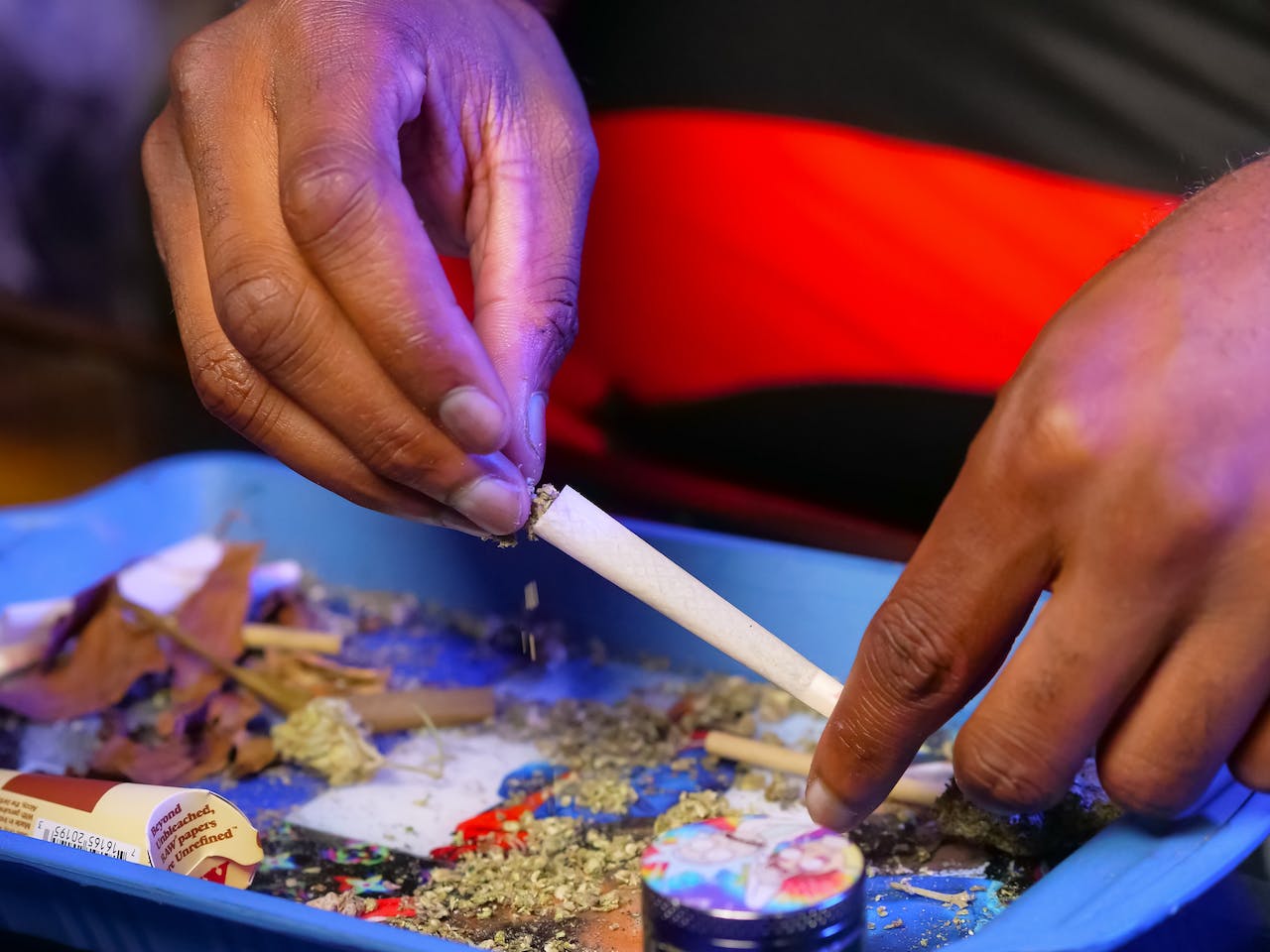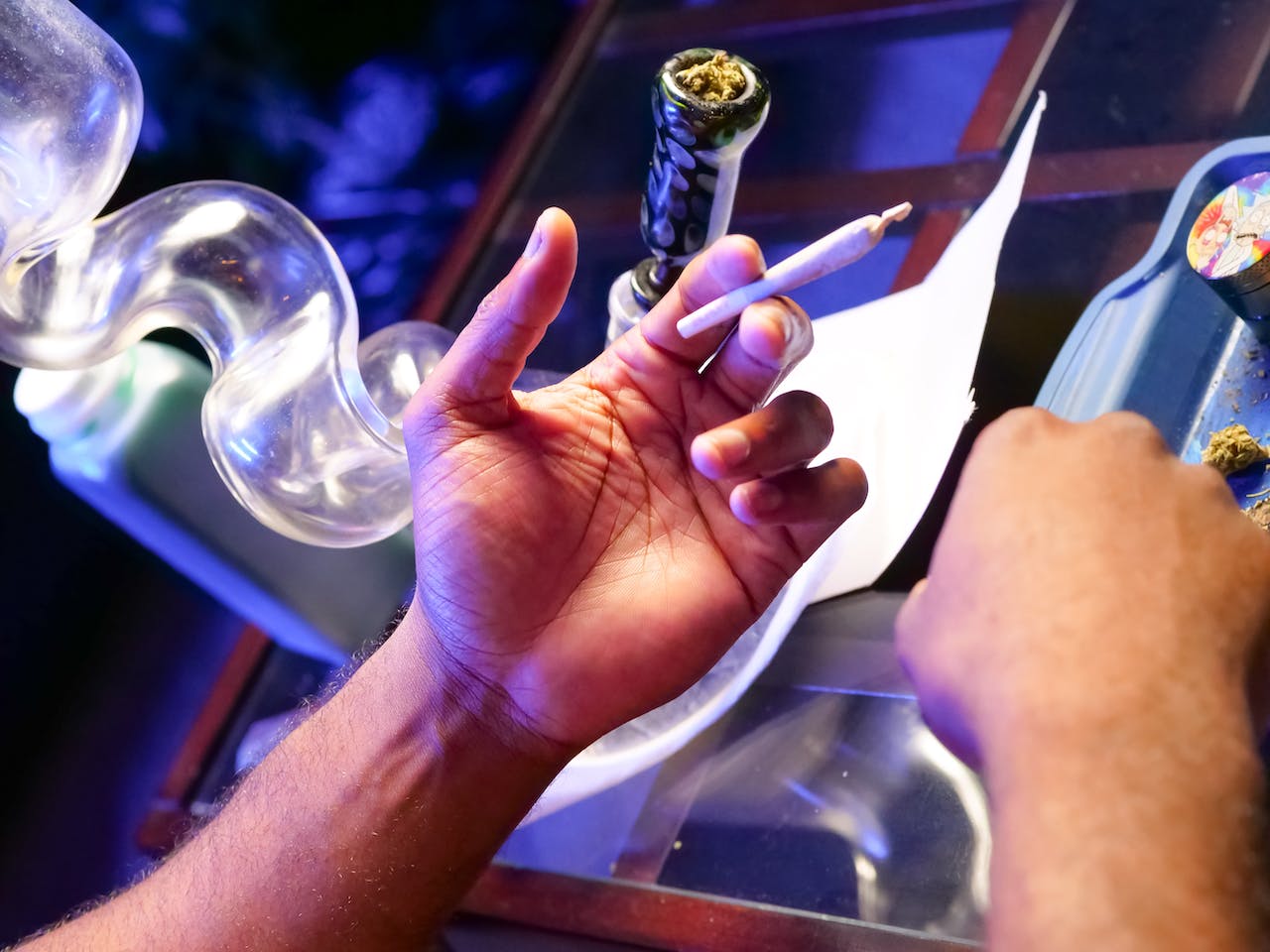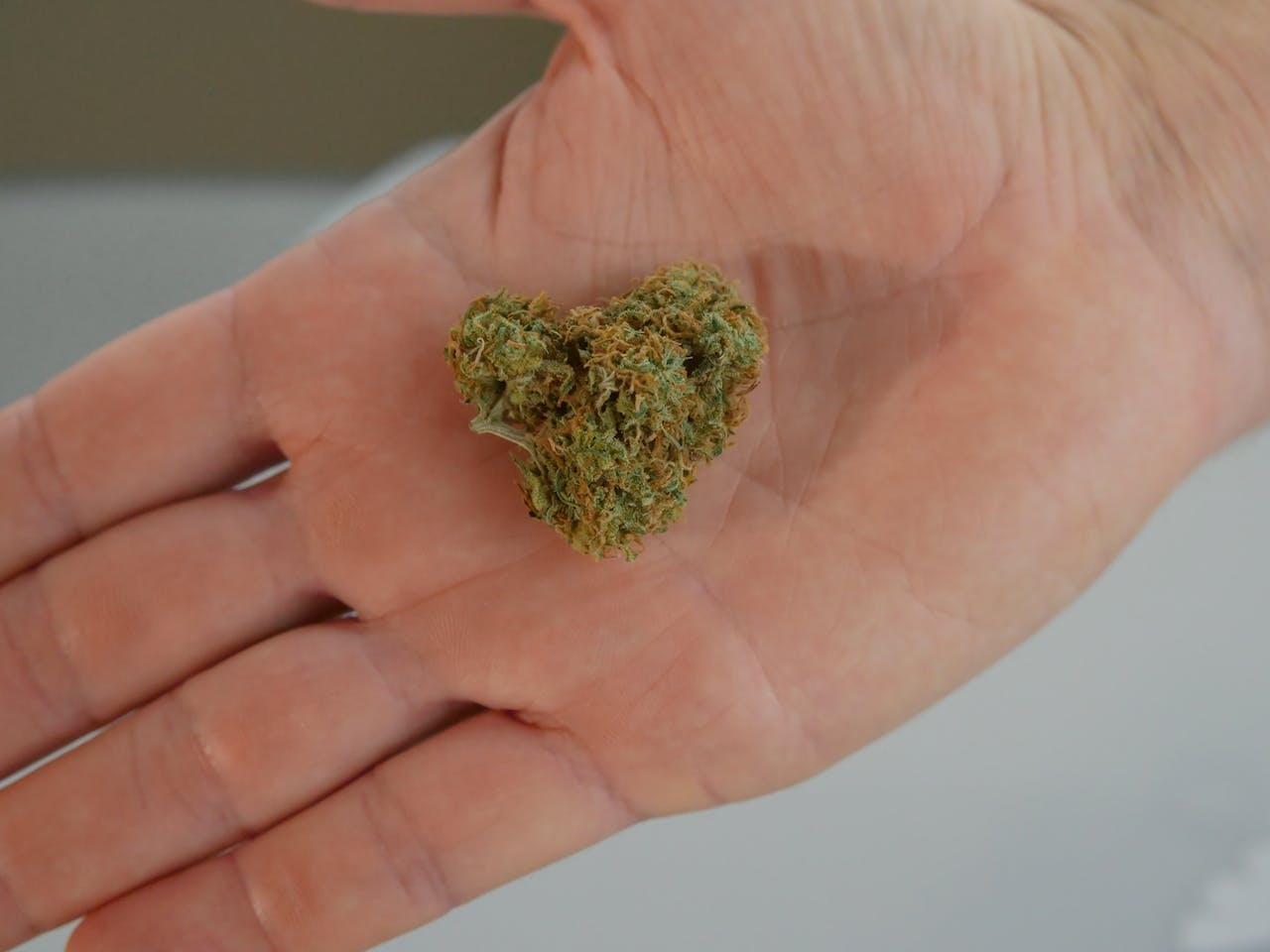Can You Take CBD At Work - Understanding The Benefits And Risks
Curious about incorporating CBD into your work routine? Wondering, Can You Take CBD At Work? This question has gained traction as individuals seek natural solutions for stress and focus.
Author:Suleman ShahReviewer:Han JuJan 19, 202412.6K Shares238.4K Views

In the fast-paced world of modern work, individuals are constantly seeking ways to manage stress, anxiety, and the pressures that come with professional life. The rising popularity of CBD, or cannabidiol, has prompted many to wonder: can you take CBD at work?
As CBD gains traction for its potential therapeutic benefits, this article explores the legal, ethical, and practical aspects of using CBD in the workplace. Understanding the implications of incorporating CBD into your work routine requires a nuanced examination of the existing landscape.
What Is CBD?
CBD, short for "cannabidiol," is a Cannabis sativa chemical. Cannabis has approximately 100 chemical compounds called cannabinoids. Cannabinoid receptors in the body bind neurotransmitters in the endocannabinoid system.
CBD produced from hemp is allowed under federal law. According to research, CBD affects the mind and body without causing a "high" effect. The FDA-approved prescription medicine Epidolex treats patients one year and older with CBD.
Delta-9 tetrahydrocannabinol is the most often associated cannabinoid with marijuana. D9 THC, most recognized for its psychotropic properties, separates federally lawful hemp from marijuana, which is still classified as illicit. The Controlled Substances Act prohibits Cannabis sativa plants and products with more than 0.3% D9 THC as Schedule I substances.
A third cannabinoid making headlines is delta-8 tetrahydrocannabinol. It is another psychoactive cannabinoid found in Cannabis sativa in tiny concentrations that consumers cannot perceive. D8 THC may be made from CBD or other legally permitted cannabinoids.
Does CBD Work?
The effectiveness of CBD, or cannabidiol, is a subject of ongoing research and debate. CBD is one of the many cannabinoids found in the cannabis plant, and it does not produce the psychoactive effects associated with THC (tetrahydrocannabinol).
People use CBD for various reasons, primarily for its potential therapeutic benefits. Here's a breakdown of some areas where CBD is believed to have an impact based on current research:
Pain Management
Some studies suggest that CBD may have analgesic (pain-relieving) properties. It is believed to interact with receptors in the endocannabinoid system, which plays a role in regulating pain.
Anxiety And Depression
There is growing interest in the use of CBDfor managing symptoms of anxiety and depression. Some research indicates that CBD may influence the serotonin system, which is involved in mood regulation.
Sleep Disorders
CBD has been explored as a potential remedy for sleep disorders, including insomnia. It may help promote relaxation and alleviate factors contributing to sleep disturbances.
Epilepsy
The most well-established use of CBD is in the treatment of certain forms of epilepsy. Epidiolex, a CBD-based medication, has been approved by the U.S. Food and Drug Administration (FDA) for the treatment of specific seizure disorders.
Inflammation
CBD is thought to have anti-inflammatory properties, and some research suggests it may be beneficial for conditions characterized by inflammation, such as arthritis.
Neuroprotective Properties
Some studies suggest that CBD may have neuroprotective effects, potentially benefiting conditions that involve neurodegeneration, although more research is needed in this area.
It's essential to note that while many people report positive experiences with CBD, individual responses can vary. Additionally, the regulatory landscape and the quality of CBD products on the market vary, which can impact their effectiveness.
However, the scientific community recognizes the need for more rigorous research to establish the full range of CBD's potential benefits, optimal dosages, and potential side effects.
Types Of CBD Suitable For Workplace Use
In the evolving landscape of CBD products, individuals seeking to integrate CBD into their work routine are met with a diverse array of options.
However, not all CBD products are created equal, and choosing the right type is crucial, especially in a professional setting. Here are some types of CBD that are generally considered suitable for workplace use:
CBD Isolate
CBD isolate is the purest form of CBD, containing no other cannabinoids, terpenes, or compounds from the cannabis plant. It comes in the form of a crystalline powder and is devoid of THC, making it an ideal choice for those concerned about drug tests.
The absence of THC eliminates the risk of psychoactive effects, allowing individuals to experience the potential benefits of CBD without compromising focus or alertness at work.
Broad Spectrum CBD
Broad-spectrum CBD retains many of the beneficial compounds found in the cannabis plant, except for THC. It offers what is often referred to as the "entourage effect," where the various cannabinoids and terpenes work together synergistically.
It can provide enhanced therapeutic effects without the presence of THC, making it a popular choice for individuals seeking a comprehensive CBD experience without the risk of intoxication.
CBD Edibles
Edibles infused with CBD, such as gummies or snacks, provide a discreet and convenient way to incorporate CBD into the work routine. They offer precise dosing and are generally well-tolerated, providing a gradual and sustained release of CBD throughout the day.
However, it's essential to be mindful of the sugar content in some edibles, especially for those concerned about maintaining a healthy diet at work.
CBD Tinctures
CBD tinctures are liquid extracts that can be placed under the tongue for fast absorption. They are discreet and allow for precise dosing, making them suitable for workplace use.
Tinctures are versatile, allowing individuals to adjust their dosage easily, making them an excellent option for those looking to manage stress or anxiety during the workday.
CBD Topicals
For individuals seeking localized relief without systemic effects, CBD topicals like creams, balms, or patches can be applied directly to the skin. These products are unlikely to cause any psychoactive effects since CBD typically does not penetrate deeply enough to reach the bloodstream.
Topicals are discreet and can be used as needed, making them a practical choice for those dealing with specific areas of discomfort at work.
CBD Capsules
CBD capsules offer a convenient and straightforward way to incorporate CBD into a daily routine. They provide consistent dosing and are discreet, making them a suitable option for those who prefer a no-nonsense approach.
Capsules can be easily integrated into a supplement regimen without drawing attention in a professional setting.
CBD Vapes (with Caution)
While inhaling CBD through vapingallows for rapid absorption, it's essential to approach this method with caution in a workplace setting. Some workplaces have specific policies against vaping, and the act itself may be perceived negatively.
If considering this option, it's crucial to be mindful of workplace rules and choose a CBD vape product that is free from harmful additives.
Is It Legal To Take CBD Before Work?
The 2018 Farm Bill legalized hemp and its products. CBD isn't marijuana, so you may use it even in states where medicinal and recreational marijuana is illegal. CBD may potentially cause complications, depending on the product and workplace, due to the presence of THC in many CBD products.
CBD products' THC levels are controlled by federal and state legislation, yet utilizing them before work might be challenging.
Intoxication And Impairment
CBD products may include different levels of THC, and some brands may have a more significant amount than stated on the packaging, leading to intoxication and impairment. If you buy CBD from an untrustworthy source, you may get intoxicated. To verify you're receiving what's on the label, get your CBD products tested by a third party.
Drug Screens
Full-spectrum CBD products may include enough THC to show up on a drug test, however unlikely. If your job requires random or frequent drug testing, you should avoid full-spectrum CBD products before work. Instead, choose broad-spectrum CBD or THC-free CBD isolate.
Is CBD Safe To Use At Work?
In the quest for holistic well-being, individuals often explore various strategies to manage stress and enhance their overall health. One emerging avenue gaining attention is the use of CBD (cannabidiol).
However, the question lingers prominently: Is CBD safeto use at work? Understanding the Safety of CBD at Work
Legal Considerations
Navigating the safety of using CBD at work requires a comprehensive understanding of the legal landscape. The legality of CBD varies across jurisdictions, and workplace policies play a crucial role. It's imperative to ask: Can you take CBD at work without violating legal or company regulations?
Drug Testing Policies
Concerns about CBD use often revolve around the potential impact of drug tests. Here, the safety aspect extends beyond physical well-being to professional implications. The question remains: Can using CBD at work jeopardize your standing if drug tests are a norm in your workplace?
Potential Side Effects
While CBD is generally well-tolerated, acknowledging potential side effects is part of ensuring safety. Understanding how CBD may affect individuals differently is essential. Is CBD safe to use at work without causing unintended side effects that may impact job performance?
Navigating Workplace Acceptance
Company Policies
Ensuring the safety of CBD use at work involves aligning with company policies. Evaluate your workplace's stance on CBD and ask whether you can take CBD at work within the parameters set by your employer.
Open Communication
Safety in CBD use is bolstered by open communication. Discussing CBD openly with colleagues and supervisors fosters an environment where questions can be addressed, concerns can be aired, and collective understanding can contribute to a safer workplace.
Balancing Professionalism
Maintaining professionalism is a critical component of safety when using CBD at work. The question arises: Can you take CBD at work in a manner that is discreet, respectful of workplace norms, and doesn't compromise the professional image you project?
The Role Of Dosage And Product Quality
Dosage Control
Safety hinges on responsible usage. Can you take CBD at work with a controlled dosage that aligns with your wellness goals without exceeding recommended limits?
Quality Assurance
The safety of CBD use is intrinsically tied to the quality of the product. Opting for reputable brands and ensuring third-party testing addresses concerns about contaminants or variations in potency. Can you take CBD at work with confidence in the product's quality?
Individual Factors
Acknowledging individual differences is paramount for safety. Can you take CBD at work, considering your unique health profile, existing medications, and potential interactions?
Can You Get Fired For Using CBD At Work?
Be cautious before taking CBD in the workplace to protect yourself and keep your job. To avoid losing your job due to policy violations, here are some things you can do.
- If your CBD product includes THC, it is essential to be upfront with your employer about your use or desire to use CBD.
- Find out whether they test employees for drugs.
- If your doctor has prescribed CBD, get a formal recommendation before using it.
- Document all of your CBD purchases.
- To be sure you're getting pure CBD with appropriate THC levels, if your employer gives the green light to utilize it, choose a product that a reputable third party has tested.
You must make sure you are purchasing a pure product. You could find CBD products that claim to be THC-free or contain more THC than they say but haven't been evaluated by a third party. A failed drug test can be the result of this. Another way for employers to help their workers avoid failing drug tests is to provide them with education on the subject.
Precaution When Taking CBD At Work
When considering taking CBD at work, it's crucial to approach it with caution and mindfulness. While CBD is generally well-tolerated, there are certain precautions to ensure a positive and responsible experience in a professional setting.
Know Your Workplace Policies
Familiarize yourself with your company's policies regarding CBD and cannabis-related products. Some workplaces may have strict rules against the use of these substances.
Check Legal Status In Your Area
Understand the legal status of CBD in your jurisdiction. Laws regarding CBD can vary, and being aware of local regulations is essential to avoid any legal complications.
Choose THC-Free Products
If you are subject to drug testing, opt for CBD products labeled as THC-free or broad-spectrum to ensure they contain non-detectable levels of THC, minimizing the risk of a positive drug test.
Start With A Low Dosage
Begin with a low dosage of CBD. Starting low allows you to assess your response and minimize the risk of unexpected effects, ensuring you can function optimally at work.
Be Mindful Of Product Quality
Choose high-quality CBD products from reputable brands. Ensuring product quality through third-party testing helps avoid potential contaminants and ensures accurate dosing.
Understand Potential Side Effects
Recognize potential side effects of CBD, such as drowsiness or changes in alertness. Understanding how CBD may affect you individually is crucial to avoid any impact on job performance.
Consider Discreet Consumption Methods
Opt for discreet consumption methods like capsules, edibles, or tinctures to avoid drawing unnecessary attention. Vaping or smoking CBD may not align with workplace norms.
Communicate Openly (If Appropriate)
If you choose to use CBD at work, consider communicating openly with your colleagues or supervisor, especially if it may affect shared spaces. Transparent communication can help address any concerns.
Monitor Your Response
Pay attention to how your body responds to CBD. If you experience adverse effects or if it affects your ability to work, reconsider the timing or dosage.
Consider Individual Health Factors
If you have pre-existing health conditions or take medications, consult with a healthcare professional before incorporating CBD into your routine. Individual health factors should be taken into account.
Respect Others' Sensitivities
Be considerate of your colleagues' sensitivities. Some individuals may have concerns or be sensitive to the smell of CBD products.
Store Products Safely
If you bring CBD products to work, ensure they are stored securely and discreetly to avoid any misunderstandings.
Be Cautious With Higher Dosages
Avoid taking higher dosages of CBD at work, especially if you are unfamiliar with its effects on your body. Gradually increase dosage if necessary, but always within recommended limits.
FAQs About CBD At Work
Is It OK To Take CBD During The Day?
What time of day someone takes CBD depends on their rationale and preferences. Current data suggests no ideal CBD timing. A person may use CBD in the morning to feel more alert or control anxiety.
Are There Side Effects To CBD?
CBD may induce dry mouth, diarrhea, decreased appetite, tiredness, and fatigue, but it's usually well-tolerated. CBD may interact with blood thinners and other drugs. CBD product quality and dose consistency is another issue.
Can I Take CBD While Working Out?
CBD before an exercise is excellent for boosting performance, reducing stress, and improving sleep. Taking CBD after an exercise can help you recover faster.
Should I Communicate With Colleagues Or Supervisors About Taking CBD At Work?
Transparent communication can be beneficial if it impacts shared spaces. However, consider workplace norms and policies before discussing CBD openly.
Can You Take CBD At Work?
The permissibility of taking CBD at work depends on various factors, including your workplace policies, local regulations, and the nature of your job. It's essential to understand and adhere to the rules in your specific work environment.
Considering All Of This
The question of whether you can take CBD at work is a multifaceted one. The legal landscape, company policies, and individual considerations all play pivotal roles in shaping the answer.
As CBD continues to gain mainstream acceptance, both employers and employees need to stay informed about the evolving landscape. Striking a balance between personal well-being and professional responsibilities is at the heart of the CBD-at-work dilemma. Navigating this delicate balance requires a thoughtful approach, open communication, and a keen awareness of the legal and cultural context in which you find yourself.
So, can you take CBD at work? The answer lies in a nuanced understanding of your specific circumstances and a commitment to making informed choices that align with both your well-being and professional success.
Jump to
What Is CBD?
Does CBD Work?
Types Of CBD Suitable For Workplace Use
Is It Legal To Take CBD Before Work?
Is CBD Safe To Use At Work?
Navigating Workplace Acceptance
The Role Of Dosage And Product Quality
Can You Get Fired For Using CBD At Work?
Precaution When Taking CBD At Work
FAQs About CBD At Work
Considering All Of This

Suleman Shah
Author
Suleman Shah is a researcher and freelance writer. As a researcher, he has worked with MNS University of Agriculture, Multan (Pakistan) and Texas A & M University (USA). He regularly writes science articles and blogs for science news website immersse.com and open access publishers OA Publishing London and Scientific Times. He loves to keep himself updated on scientific developments and convert these developments into everyday language to update the readers about the developments in the scientific era. His primary research focus is Plant sciences, and he contributed to this field by publishing his research in scientific journals and presenting his work at many Conferences.
Shah graduated from the University of Agriculture Faisalabad (Pakistan) and started his professional carrier with Jaffer Agro Services and later with the Agriculture Department of the Government of Pakistan. His research interest compelled and attracted him to proceed with his carrier in Plant sciences research. So, he started his Ph.D. in Soil Science at MNS University of Agriculture Multan (Pakistan). Later, he started working as a visiting scholar with Texas A&M University (USA).
Shah’s experience with big Open Excess publishers like Springers, Frontiers, MDPI, etc., testified to his belief in Open Access as a barrier-removing mechanism between researchers and the readers of their research. Shah believes that Open Access is revolutionizing the publication process and benefitting research in all fields.

Han Ju
Reviewer
Hello! I'm Han Ju, the heart behind World Wide Journals. My life is a unique tapestry woven from the threads of news, spirituality, and science, enriched by melodies from my guitar. Raised amidst tales of the ancient and the arcane, I developed a keen eye for the stories that truly matter. Through my work, I seek to bridge the seen with the unseen, marrying the rigor of science with the depth of spirituality.
Each article at World Wide Journals is a piece of this ongoing quest, blending analysis with personal reflection. Whether exploring quantum frontiers or strumming chords under the stars, my aim is to inspire and provoke thought, inviting you into a world where every discovery is a note in the grand symphony of existence.
Welcome aboard this journey of insight and exploration, where curiosity leads and music guides.
Latest Articles
Popular Articles



